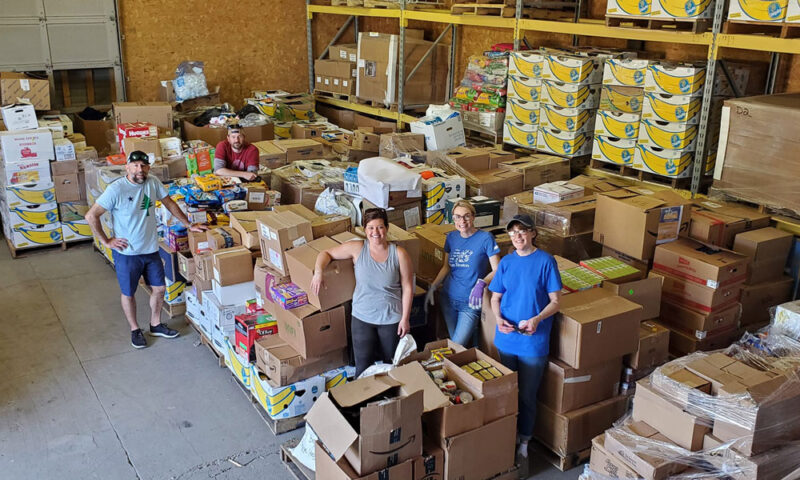
Maine Associations Provide Humanitarian Aid to Ukraine
When the CEO of the Retail Association of Maine heard about the war in Ukraine, he reached out to his counterpart in Ukraine to offer support. That connection led to the development of the From Maine To Ukraine Initiative, which recently shipped nearly 40,000 pounds of supplies to the war-torn country.
Psychologists, sociologists, and association leaders all know one truth: connection matters. So does reaching out and offering support. That’s why Curtis Picard, president and CEO of the Retail Association of Maine (RAM), reached out to the Association of Retailers of Ukraine following Russia’s invasion of the country.
“I decided to shoot the CEO of that organization an email, and said, ‘I just wanted to let you know, I’m thinking about you guys,’” Picard said. “A couple days later, I heard back from her, and she was very appreciative and thankful that someone would think to reach out. We ended up swapping a number of emails over the next week or two.”
While Picard initially thought he was just making a connection for support, it turned into an effort that would bring together RAM and another state association, several retail members, and Maine residents to collect supplies for Ukraine. By late May, the From Maine to Ukraine initiative shipped nearly 40,000 pounds of supplies to Ukraine.
A Call for Help
After exchanging several emails in March, his Ukranian counterpart asked if Picard could send humanitarian aid. His response: “I’m not sure, but I’m willing to try.”
Picard knows a lot of people and figured he could leverage those connections for assistance in figuring this out. When having dinner with friend Tony Cameron, CEO of the Maine Tourism Association, he mentioned the project. That’s when Cameron stepped up to the plate and offered MTA as a partner.
“[Cameron] said ‘We’re not in prime tourism season yet, so it is not a busy time of year for my staff. We’ve used the seven visitor centers as collection locations for food drives before, so we can open them up to be collection locations,’” Picard said. “That was a key piece right there. All of a sudden, we had statewide coverage.”
From there, things came together quickly. The Ukranians had asked for specific clothing items, including winter hats, gloves, sleeping bags—so Picard sought clothing donations from his retail members. Food donations were sought from the public and dropped at the visitor centers.
Logistical Fortitude Required
What happened next exceeded Picard’s expectations.
“Tony [Cameron] would call me and say, ‘You wouldn’t believe how much stuff we have in some of the visitor centers,’” Picard said. “Then he started texting me some of the photos of what was coming in, and we were like, ‘Holy cow! How are we going to do this?’”
Staff from both associations, as well as their board members, chipped in to organize the donations, wrap them, and pack them onto pallets for shipping. “We had to break it down by household goods, clothing, pet food,” Picard said. “We got literally more than a ton of pet food.”
The next logistical challenge was how to get the stuff to Ukraine. A fortuitous mention in a newspaper article led Picard to Meest, a shipping company that transports to Ukraine. Then, two more logistical issues arose: transportation and cost.
Meest is in New Jersey, which meant the associations had to get the goods from Maine to Meest. They also needed to raise $15,000 to pay for shipping.
Reaching out to their network and a little luck solved those issues. Many member companies donated to cover the shipping cost. By luck, a lumber retailer heard about the effort and called Picard asking if he could help. Picard said he needed trucks to drive the goods to New Jersey, and “within two days, the trucks were rolling out.”
The goods were shipped May 23. With the length of sea travel, the shipment was scheduled to arrive in Ukraine on June 30.
If other associations are interested in sending aid to Ukraine, Picard is happy to offer logistical advice or talk through his experience. Picard said he was glad the associations were able to help and adds that rallying resources to aid others is in the wheelhouse of what most associations do.
“Really, this is what we all do as association execs,” Picard said. “We have a certain amount of power to be able to help our members where we can. We just used that power a little differently this time to help people halfway around the world.”
(via RAM’s Facebook page)






Comments